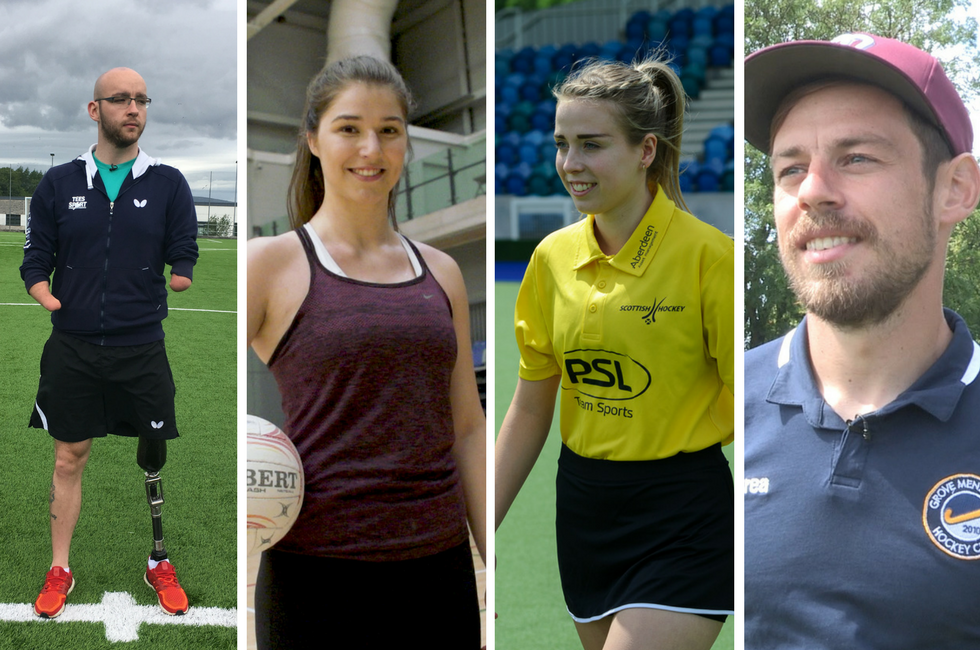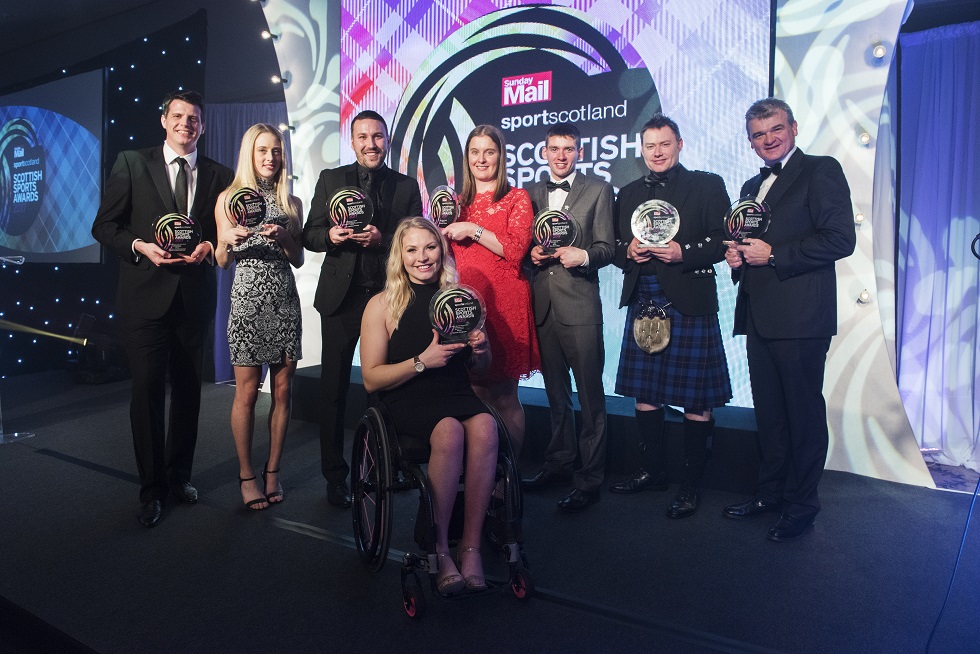In 2015, in a world first, medics, sports, Scottish Government and sportscotland, came together to produce a single concussion policy for all sports and now an updated version of those guidelines has been released.
Athletes from a range of sports, including rugby, hockey, football, judo, shinty and netball, and experts in concussion management and sport came together at Oriam, the national performance centre, to launch the new guidelines which reflect updates to the global sports concussion guidance, following a meeting of experts in Berlin last year.
Concussion understanding has progressed rapidly in the past decade, but we still have only scratched the surface in this area. There remain many unknowns – in particular about the medium and long term consequences of repeated poorly managed concussions. These updated guidelines are designed to shape a consistent, accurate message.
Speaking on behalf of the team of experts behind the guidelines, including Scottish Rugby, Scottish Football Association, Universities of Edinburgh, Glasgow and Stirling, the Camanachd Association and the sportscotland institute of sport, Scotland’s deputy chief medical officer, Dr Gregor Smith, said: “These updated guidelines build on Scotland’s world-leading approach of creating one consistent, evidence-based policy towards concussion across all sports. They draw on recent international advances in the understanding of concussion and, in particular, of how to better rehabilitate people.
“The Scottish Government is committed to increasing the opportunities for people to play sport and be active.
"At the same time, the safety and wellbeing of all who participate is paramount and that’s why we’re reminding coaches, players and spectators that all concussions are serious. If there is any doubt over someone’s health or fitness to return to play, sit them out.”
Rehabilitate or rest?
While the previous guidelines advised rest as the main treatment for concussion, the advice now is that, like any other injury, the brain needs to rehabilitate rather than rest.
A concussed brain should be challenged in controlled stepwise increases in function to rehabilitate it back to a normal life of work or school as the first priority, and then again stepwise increases in physical activity to get back to sport.
Young developing brains need slower rehabilitation and hence the minimum times for return to sport are different for adults, adolescents and children.

Will Cowie (shinty), Bex Condie (hockey), Samantha Murphy (netball), Peter Robinson (concussion campaigner), David Denton (rugby), Dr Gregor Smith (Scotland's Deputy Chief Medical Officer), Don Cowie (football), Lizzie Arnot (football), Sam Ingram (judo).
Concussion campaigner Peter Robinson, who tragically lost his son Ben following repeated concussions during a school rugby match, was at the launch and said: “It only takes one person to recognise the signs and symptoms of concussion and that could be a teammate, spectator, parent, coach or referee.
“At grassroots level we don’t have the luxury of the medical back up that professional sports do, so we all have a duty to be informed to ensure that it’s the safest playing environment possible for participants to enjoy an active lifestyle.”
Consistent message
The focus of the previous guidelines was on providing clear, simple guidance to coaches, officials, parents, teachers and athletes to ensure that concussion can be recognised quickly and managed effectively from the initial injury to a phased return to play.
The aim is now to further engage colleagues in Accident and Emergency and general practice to ensure a consistent message on concussion advice right across Scotland.
Scotland netball international and Sirens star Samantha Murphy gave her backing to the guidelines, saying: “As an athlete I know the benefits of taking part in sport are huge and we need to do all we can to encourage more people to take part in sport and physical activity.
“However, injuries do occur in sport. We know how important it is to treat those injuries properly and concussion is no different. This initiative is all about recognising the risk and changing attitudes to concussion, making the sporting environment as safe as possible for everyone taking part in sport in Scotland.”
While evolving evidence into head injuries in sport has been the driving factor in refreshing the guidelines, the overarching message remains the same: all concussions are serious - if in doubt, sit them out.
Find out more
The new guidelines are available on the sportscotland website.




